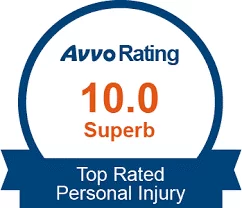How to Talk to Your Children About the Accident
In the hours following a vehicle accident that causes serious injury to your spouse, your children will likely realize something is up—especially if someone other than their mother/father picks them up from school, or if the two of you aren’t home for dinner. How do you break the news to your kids about what has happened? How do you help them process this difficult information?
Let the News Come from You If Possible
If at all possible, you should be the one to tell the children what happened to their mother or father—preferably in a calm setting where you can discuss it and they can ask questions. Hearing the news from someone else (for example, from whoever picks them up from school) could cause unnecessary anxiety and increase their sense of powerlessness. If you bring in a caregiver or someone to pick up the kids, you might instruct them to tell the children that something has come up and their parents will be late.
Calm Yourself First
In a time of crisis, your children need to know that someone they trust is in control. You want to be honest with your feelings in general, but if you are panicked yourself, you’ll only pass that fear to your kids. Take a moment to compose yourself before having the conversation with the children. Susie Cavill writes in The Loop, “You may need to talk out your emotions with friends or a family member before you talk to your kids. If anything, get the support so that you can work through what you need to say without unloading too much information on your kid because you’ve not processed the news yourself.”
Be Honest
As calmly as possible, and in terms, they will understand, let the children know what happened. Tell them Mom or Dad was hurt, and what condition they are in. Share whatever positive news you might have (for example, if the doctors say your spouse will be okay), but don’t flinch if the prognosis is serious. They don’t need to know gory details, but lying or sugar-coating the situation may only lead to distrust down the road. Let them know it’s okay to be sad or scared, and that you are there for them.
Let the Children Ask Questions
Children process information by asking questions, so invite them to ask you anything. It’s okay if you don’t know the answer; just be honest and say you don’t know. Let them keep asking until they have processed the situation.
Should You Let the Children Visit the Hospital?
The answer depends mainly on their age, maturity level and hospital policies. Smaller children may not be emotionally equipped to see their parent in critical condition or grossly injured, they may need to wait until Mom or Dad has passed the worst of it before seeing them. For older children, seeing their parents sooner rather than later may help them process what has happened.
Be Mindful of the Children
Children process traumatic situations differently than adults, and sometimes they get stuck. As weeks and months go by, if you notice symptoms like recurring nightmares, bedwetting or aggressive behavior, your child(ren) may need to talk with a professional who can help them process what they are going through.
For experienced legal help with personal injury cases, Greathouse Trial Law is here to help. Call us at 678-310-2827 for a free evaluation.


